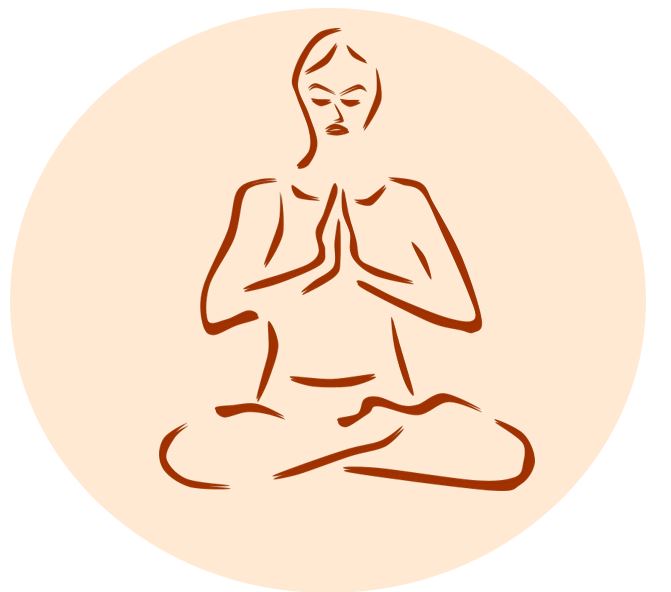How to Cope with COVID-19 Stress
Tips from the VA’s National Center for PTSD
By: Allison Kozicharow; Edited by Jessie Crowdy
Managing stress during the COVID-19 pandemic is no easy task, especially when cooped up inside. The U.S. Department of Veteran Affairs’ (VA) National Center for PTSD has posted a useful guide to handling the pressure as well as offering a downloadable handout. The following are excerpts from the VA’s steps to reduce anxiety.
Stay Connected
- Seek support from family, friends, mentors, clergy and those who are in similar circumstances.
- Be flexible and creative in accessing support via phone, email, text messaging and video calls.
 Cultivate Ways to be More Calm
Cultivate Ways to be More Calm
- Realize that it is understandable to feel anxious and worried about what may happen, especially when many aspects of life are being affected.
- If you find that you are getting more stressed by watching the news, reduce your exposure, particularly prior to sleep.
- While circumstances may be stressful and beyond your control, you can try to offset them with positive calming activities. Practice slow, steady breathing and muscle relaxation, as well as any other actions that are calming for you (e.g., yoga, exercise, music, keeping the mind occupied).
- Preparing for a range of possible scenarios and having adequate supplies should sheltering at home be necessary can help you feel more calm. For instance, you can put together supplies for you and your family. Include supplies such as:
- Water and food, vitamins, fluids with electrolytes and food preparation items such as a manual can opener.
- Prescribed medical supplies or equipment, such as glucose or blood pressure monitoring equipment; thermometer; medicines for fever, such as acetaminophen or ibuprofen; anti-diarrheal medication.
- Hygiene supplies such as soap and water, alcohol-based hand wash, soap, tissues, toilet paper and disposable diapers if necessary.
- General supplies such as a flashlight and batteries, portable radio and garbage bags.
- Read more about pandemic preparedness on the CDC website.
 Improve Your Sense of Control and Ability to Endure
Improve Your Sense of Control and Ability to Endure
- Accept circumstances that cannot be changed and focus on what you can alter.
- Modify your definition of a “good day” to meet the current reality of the situation.
- Problem-solve and set achievable goals within the new circumstances in your life.
- Evaluate the absolute risk of contracting the virus and recognize the benefits of accepting a certain level of risk in order to maintain as much of your normal routine as possible.
Those who have been faced with life-threatening situations recommended the following strategies:
- Quickly recognize, acknowledge and accept the reality of the situation.
- Make a plan for dealing with feelings of being overwhelmed or overly distressed. Preparation can make you feel more in control if these feelings arise and help you move through them quickly.
- Combat unhelpful emotions by using distraction or staying busy — both mentally and physically.
- Avoid impulsive behavior.
- Get organized.
- Increase positive coping behaviors that have worked in the past.
- Shift negative self-statements to statements that allow you to function with less distress. Try changing “this is a terrible time” to “this is a terrible time, but I can get through this.”
- Rather than getting discouraged, focus on what you can accomplish or control.
- Seek out mentoring or information to improve your ability to make decisions and take actions when necessary.
- Try to engage in the situation as a challenge to be met, which can increase your ability to act both creatively and decisively.
- Consider the stressful situation in a broader context and keep a long-term perspective.
- Look for opportunities to practice being more patient or kind with yourself, or to see the situation as an opportunity to learn or build strengths.
- Celebrate successes, find things to be grateful about, and take satisfaction in completing tasks, even small ones.
- Give yourself small breaks from the stress of the situation by doing something you enjoy.
- Draw upon your spirituality, those who inspire you, or your personal beliefs and values.
Source: The U.S. Department of Veteran Affairs’ (VA) National Center for PTSD
Note: For a comprehensive lesson on COVID-19 and related topics, go to:
NEW: WiRED Module for Coping with Stress during COVID-19 Outbreak
 Coping with Stress During COVID-19 Outbreak is WiRED’s newest addition to our COVID-19 Module Series. Based on the VA’s PTSD guidelines, this module presents information about the impact of the virus pandemic and practical steps to reduce stress. Module recommendations can help people maintain healthy hygiene habits, stay connected, cultivate ways to be more calm, improve the sense of control and the ability to endure and remain hopeful, as well as offering suggestions from survivors of similar crises.
Coping with Stress During COVID-19 Outbreak is WiRED’s newest addition to our COVID-19 Module Series. Based on the VA’s PTSD guidelines, this module presents information about the impact of the virus pandemic and practical steps to reduce stress. Module recommendations can help people maintain healthy hygiene habits, stay connected, cultivate ways to be more calm, improve the sense of control and the ability to endure and remain hopeful, as well as offering suggestions from survivors of similar crises.



